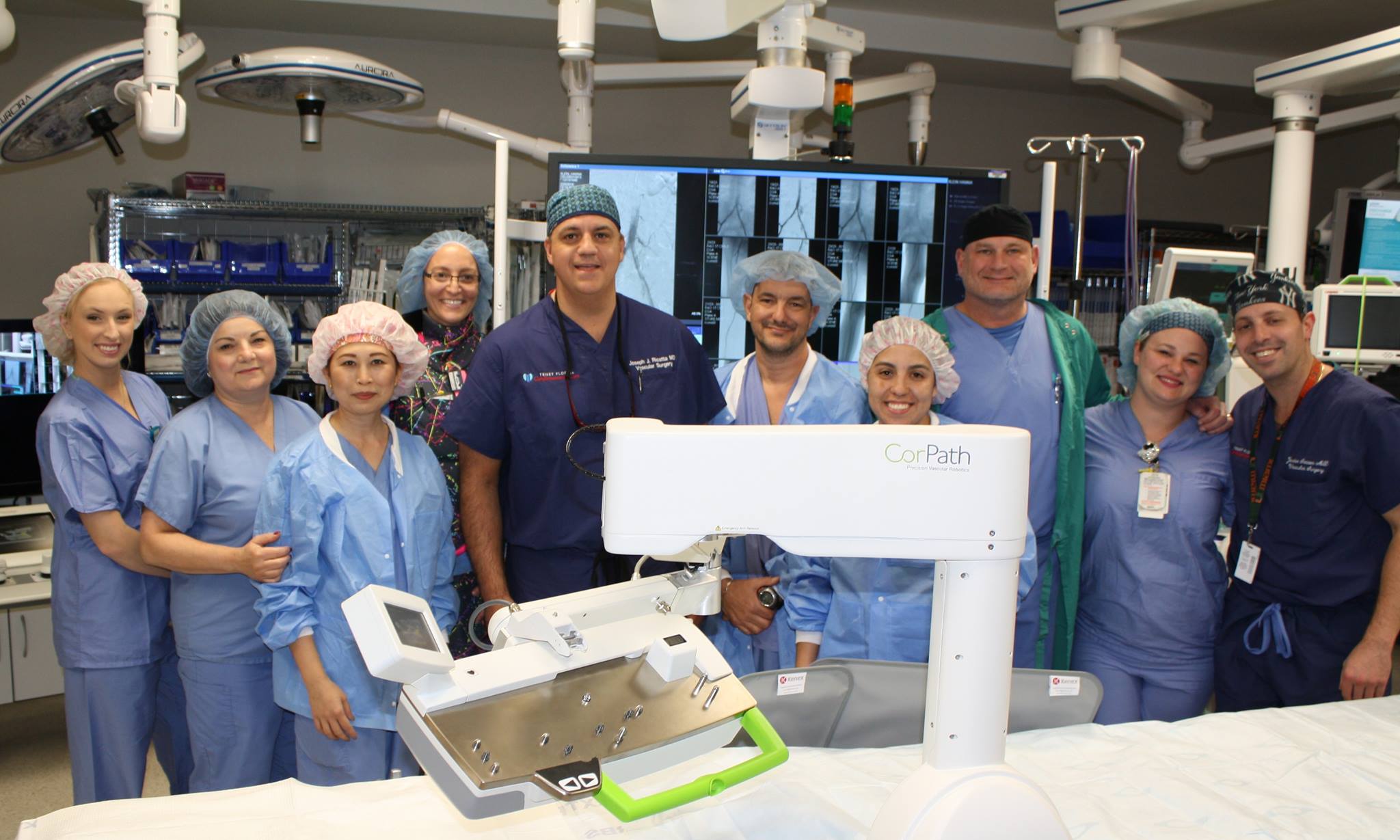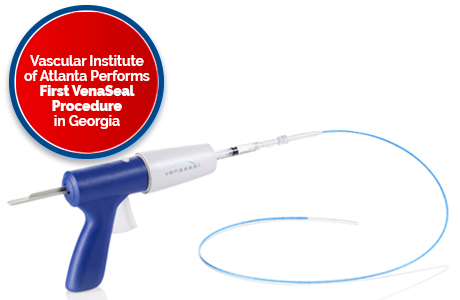Aneurysms (Aortic and Peripheral)
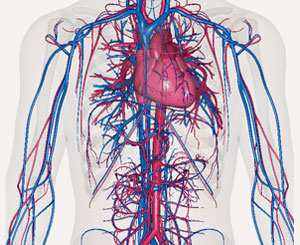 An aneurysm is a ballooning or dilation of a blood vessel to more than 150% of its normal size, which is generally caused by damage to the lining of the blood vessel wall. The most common artery to develop an aneurysm is the aorta, followed by the iliac artery, femoral artery, and popliteal artery. Less commonly, aneurysms can develop in the carotid, subclavian, renal, and mesenteric arteries. If left untreated, aneurysms can rupture or burst, which can cause serious bleeding and the potential for a life threatening situation, while some aneurysms may also create blood clots or lead to a stroke.
An aneurysm is a ballooning or dilation of a blood vessel to more than 150% of its normal size, which is generally caused by damage to the lining of the blood vessel wall. The most common artery to develop an aneurysm is the aorta, followed by the iliac artery, femoral artery, and popliteal artery. Less commonly, aneurysms can develop in the carotid, subclavian, renal, and mesenteric arteries. If left untreated, aneurysms can rupture or burst, which can cause serious bleeding and the potential for a life threatening situation, while some aneurysms may also create blood clots or lead to a stroke.
At Tenet Florida Cardiovascular Care, we treat all forms of aneurysms; however, the remainder of this section will focus on aortic aneurysms.
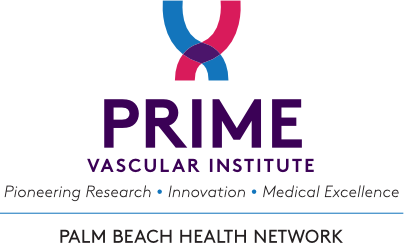
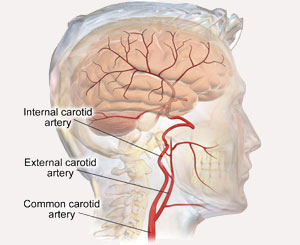 Stroke is the 3rd leading cause of death in the United States, with greater than 750,000 new cases per year. Eighty percent of strokes are ischemic as a result of lack of blood flow to the brain and the majority of ischemic strokes are due to carotid artery disease, which is also called carotid stenosis.
Stroke is the 3rd leading cause of death in the United States, with greater than 750,000 new cases per year. Eighty percent of strokes are ischemic as a result of lack of blood flow to the brain and the majority of ischemic strokes are due to carotid artery disease, which is also called carotid stenosis.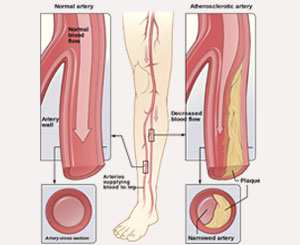 Peripheral artery disease (PAD) is a common circulatory problem that affects 12 million people in the United States alone. It occurs when plaque builds up and clogs the arteries and prevents the extremities, primarily the legs but sometimes the arms, from receiving enough blood flow to keep up with demand. Studies show that PAD affects 5% of people between the ages of 60-69, and 15% of those 70 years of age or older. Peripheral artery disease is also likely to be a sign of a more widespread accumulation of fatty deposits in your arteries (atherosclerosis). The 5-year mortality rate for someone with PAD can be as high as 30%.
Peripheral artery disease (PAD) is a common circulatory problem that affects 12 million people in the United States alone. It occurs when plaque builds up and clogs the arteries and prevents the extremities, primarily the legs but sometimes the arms, from receiving enough blood flow to keep up with demand. Studies show that PAD affects 5% of people between the ages of 60-69, and 15% of those 70 years of age or older. Peripheral artery disease is also likely to be a sign of a more widespread accumulation of fatty deposits in your arteries (atherosclerosis). The 5-year mortality rate for someone with PAD can be as high as 30%.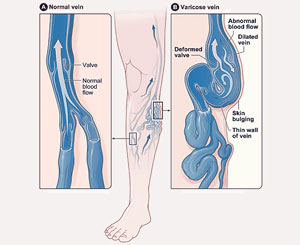 Venous disease refers to all conditions caused by abnormal or diseased veins. It usually involves veins in the legs or arms, but can also involve veins in the chest, abdomen or pelvis. It generally includes blood clots—also called deep vein thrombosis or DVT—however, varicose veins, vein stenosis (narrowing), venous insufficiency (reflux of blood), pelvic congestion syndrome, spider veins, and compressive syndromes such as thoracic outlet syndrome are also common.
Venous disease refers to all conditions caused by abnormal or diseased veins. It usually involves veins in the legs or arms, but can also involve veins in the chest, abdomen or pelvis. It generally includes blood clots—also called deep vein thrombosis or DVT—however, varicose veins, vein stenosis (narrowing), venous insufficiency (reflux of blood), pelvic congestion syndrome, spider veins, and compressive syndromes such as thoracic outlet syndrome are also common. 